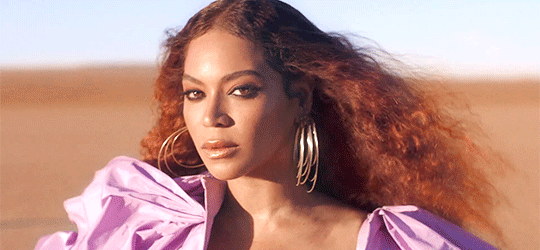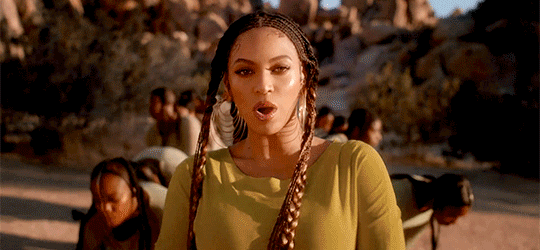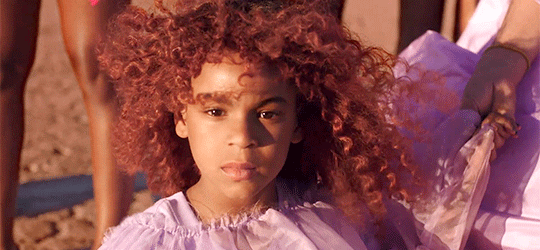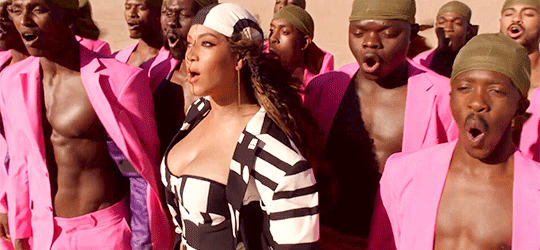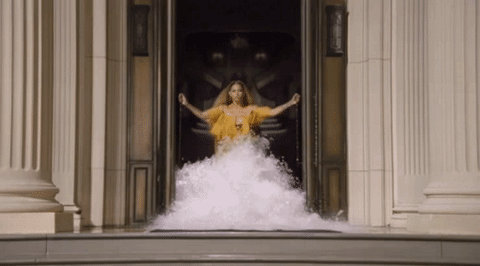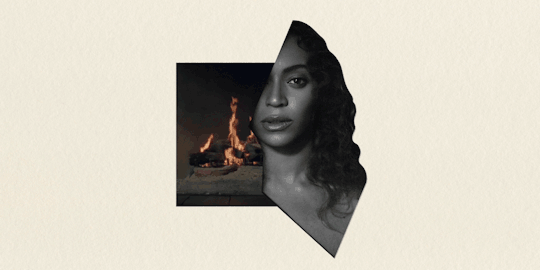As a pop music heavyweight, Beyoncé turned the decade over on its head with polarizing records that set the world ablaze. We analyze recent years, through which the artist's voice and activism has helped set a course for rapid progression in terms of gender, sexuality, race, and intersectionality. (read from the bottom up.)
Don't wanna be here? Send us removal request.
Text
HOMECOMING: 2018-Present
After 20 years in the music industry, most artists would release at least one “Greatest Hits” CD.
Let’s just say that Beyoncé recorded her CD in front of thousands at the biggest music festival in the world, 20 years in.
In April of 2018, Beyoncé headlined at Californian music festival Coachella. Nicknamed “Beychella”, the two-night concert was inspired by HBCUs (historically black colleges or universities); particularly, the HBCU homecoming, which includes massive marching bands and dancers that storm the field at the football game’s halftime. On a stage made to replicate bleachers, Beyoncé, dozens of dancers in yellow Black Panther attire, and a 100+ piece marching band performed at peak blackness for over two hours in front of a rich, white, flower crown-adorning audience. Live-streamed on Youtube, her weekend 1 performance garnered over 43.1 million views, from over 232 countries. It became the most watched Coachella performance ever, as well as the most viewed live performance of all time on the platform.
A year later, she released the two performances, along with edited behind-the-scenes footage and commentary of rehearsals, in a documentary-style special entitled “HOMECOMING” on Netflix. Throughout, she talks about her influences for the show, including Nefertiti and the black college experience. Originally, she had planned to do Coachella 2017, but had to postpone her appearance after getting pregnant with twins, Rumi and Sir Carter. HOMECOMING showcases the singer getting back on her feet after a pregnancy riddled with complications, including pre-eclampsia and toxemia. She worried that she would not be the same performer that she was prior to the delivery. A vulnerable, honest look about these unfortunately common health struggles gave way to media outlets bringing light to them. Doctor Tia Jackson-Bey, an OB-GYN, elaborates on the importance of the information’s inclusion in the documentary: “The more people understand preeclampsia and other important factors in maternal morbidity and mortality, the sooner we can act to improve pregnancy outcomes for all American women and reduce racial disparities that contribute the burden of pregnancy-related disease.”
The HOMECOMING live album concludes with “Before I Let Go”, a cover of Frankie Beverly and Maze’s song of the same title. With it came a dance craze that swept black America; lines “Ooh (to the left)/ I just wanna have a good time (turn around)/Turn around, kick, then slide/ And twirl yourself to the right, now” inspired listeners to come up with their own choreographies to the latter half of the song. The trend’s virality mirrored the “Single Ladies” dance craze that Beyoncé herself had begun a decade prior.
In 2019, the artist co-starred with Donald Glover in Disney’s live-action reboot of “The Lion King”. In her very Beyoncé way, she didn’t leave her input simply at the role or its soundtrack. Rather, she also produced and curated an entirely new soundtrack, entitled “Lion King: The Gift”. She rallied African artists from both coasts of the continent to create an authentic culmination of sounds that rang true to the film’s setting. This gift was what the singer called, “A love letter to Africa… I wanted to make sure we found the best talent from Africa, and not just use some of the sounds and did my interpretation of it.” These artists included Tekno, Mr. Eazi, Yemi Alade, and Tiwa Savage, as well as collaborations from western artists in Kendrick Lamar, Tierra Whack, Jessie Reyes, and Major Lazer. The lead songs, “Spirit” and “Bigger” involve answering to a bigger calling than oneself, and remembering that each individual is part of a much larger whole in the universe. The songs are quite fitting to round out the decade for the singer, through which she has reminded society that as big as she is, she is apart of and will continue to fight for something way bigger.
0 notes
Note
hey, didn’t beyonce do the superbowl twice? what was up with all the controversy? why were people boycotting her? love your account btw queen!
Hi, anon! Thank you! And yes, she did in fact perform at the Super Bowl twice. In 2016, Coldplay brought Beyoncé and Bruno Mars onto the field during the halftime show. Beyoncé performed her new song “FORMATION” at the show, which was controversial because she dressed her back-up dancers as Black Panther members.
Previously, Beyoncé had already been a vocal supporter of the Black Lives Matter movement. This, along with her singing the word “negro” on national television in front of hundreds of millions of people, had white sports fans in a frenzy. They called the singer a racist and threatened to boycott her and all of her music.
She responded by selling “Boycott Beyoncé” t-shirts and merch on her website.
0 notes
Quote
The most disrespected woman in America, is the black woman. The most un-protected person in America is the black woman. The most neglected person in America, is the black woman
Malcolm X, Who Taught You to Hate Yourself?
0 notes
Quote
“I tried to change, closed my mouth more. Tried to be soft, prettier. Less … awake. Fasting for … 60 days. Wore white. Abstained from mirrors. Abstained from sex. Slowly did not speak another word. In that time my hair grew … Past my ankles. I slept on a mat on the floor. I swallowed a sword. I levitated … into the basement, I confessed my sins and was baptized in a river. Got on my knees and said "Amen.” And … I said I mean. I whipped my own back and asked for dominion at your feet. I threw myself into a volcano, I … I drank the blood and drank the wine. I’m sat alone and begged and bend at the waist for God. I crossed myself and though I saw the devil. I grew thickened skin on my feet. I bathed … in bleach and plugged my menses with … pages from the Holy Book. But … still inside me coiled deep was … the need to know. Are you cheating? Are you cheating on me?“
Beyoncé Giselle Knowles-Carter ( Lemonade Part 2: Denial )
281 notes
·
View notes
Text
LEMONADE: 2016-2018
“The most disrespected person in America, is the black woman.”
It should not be shocking that such an affecting statement was spoken by Malcolm X, though one must ask why it isn’t one of his more famous quotes. The excerpt from his speech “Who Taught You to Hate Yourself?” echoed in the background of Beyoncé’s sixth album “LEMONADE” — or rather, the visual portion of it. On April 23rd, 2016, Beyoncé premiered her newest visual album “LEMONADE” for a global audience of HBO subscribers (and those that scrambled to secure a free-trial to the premium television network). Immediately after, the album was released exclusively on Tidal (the streaming service that the singer and husband Jay-Z co-own, along with 15 other artists), and would remain exclusive on the platform until the album’s anniversary three years later in 2019. Limited release did little to sway its popularity, as the album debuted at No. 1 on the Billboard 200 chart, being her sixth consecutive album to do so.
The LEMONADE era technically began prior to Super Bowl 50, when Beyoncé surprise-released the song “FORMATION”, and its accompanying music video, on TIDAL on February 6th, 2016. The song was seen as a protest. It denounced Beyoncé’s trolls and haters bluntly, as well as sampling phrases from black LGBT influencers Big Freedia and the late Messy Mya; “I did not come to play with you hoes… I came to slay, b**ch!” blared proudly throughout an antique-decorated home in Louisiana. Pop culture enthusiasts immediately regarded this moment as Beyoncé embracing her blackness, after years of maintaining a palatable and easily-digestable pop star for the white masses. The video depicted the singer and her back-up dancers dancing along to poignant lyrics such as “I like my baby heir with baby hair and afros/ I like my negro nose with Jackson 5 nostrils”. These lyrics relate to her daughter Blue Ivy (who is pictured smiling proudly) and her husband, who regularly receives attacks on his appearance somewhat due to his African features. Also shown is a black boy standing alone in front of white police officers in riot gear, an ode to the growing “Black Lives Matter” movement and police brutality. The video ends with Beyoncé atop a police car that sinks beneath a large body of water in the middle of the city. This shot is reminiscent of the communities decimated by Hurricane Katrina in Louisiana, particularly the black communities that did not receive aid for months under the Bush presidency.
FORMATION was included as the finale to “LEMONADE”. The album, like its predecessor, was culturally significant, albeit for different reasons. “LEMONADE” told a tale about marital infidelity, along with the stages of grief and healing that come with it, specifically with the way that the identity of a Southern black women afflicts the journey. Songs such as “Pray You Catch Me” and “Sandcastles” saw a vulnerable Beyoncé grapple with having an estranged lover, while songs like “Hold Up” show her bubbling aggression at the onset of his betrayal. She maintains her importance not only in her husband’s life, but in society, with the lines “Just imagine for a moment that you never made a name for yourself/… never had the baddest woman in the game up in your sheets./ Would they be down to ride? No.” In turn, “Don’t Hurt Yourself” shows an angry, no-filter Beyoncé smashing car windows and dancing in front of fire to the lyrics “I am the dragon breathing fire/ Beautiful man, I’m the lion/ Beautiful man, I know you’re lying”. The visual album is very movie-esque; each song is divided by scenes of black women, including Beyoncé herself, both dressed in traditional southern antebellum attire and in the present day. They are displayed as carefree, majestic, stoic and, perhaps most importantly, at the forefront. Accompanying these scenes are lines of poetry, read by the singer, written by Nigerian-born U.K. poet Warsan Shire. Beyoncé takes her eponymous release a step further by delving into the cyclical effects of patriarchy and how it relates to the wife, mother, sister, daughter in black families. In “Daddy Lessons”, Beyoncé recalls her father’s own mistreatment of her mother, and recites a mantra that he embedded in her from a young age: “When trouble comes to town, and men like me come around/ Oh, my daddy said shoot”. The black man’s own suffering is also highlighted later; “Freedom” is replicates the format of a traditional negro spiritual, with Beyoncé crowing to a church organ and exuberant drums. Kendrick Lamar’s rap in the bridge waxes unconventional, narrating a police chase rooted in racial profiling: “Channel 9 news tell me I'm movin' backwards/ Eight blocks left, death is around the corner/ Seven misleadin' statements 'bout my persona”.
“LEMONADE” ends in reconciliation. The singer narrates a recipe for Lemonade, and ties it in the metaphor for life that the album tackles. A sound bite from Jay-Z’s grandmother at the end sums up the work: “I've had my ups and downs, but I always find the inner strength to pull myself up. I was served lemons, but I made Lemonade.” An album’s worth of cultural and familial evaluation culminates in the song “All Night”, through which Beyoncé sings “With every tear came redemption/ And my torturer became my remedy”. About this message, she explained to VOGUE, “I come from a lineage of broken male-female relationships, abuse of power, and mistrust. Only when I saw that clearly was I able to resolve those conflicts in my own relationship”. “FORMATION” at the end grounds us back into reality, as a celebration of blackness and continuing to flourish in the face of adversity.
Earlier, we touched upon how intersectionality in feminism allows us to highlight the oppression of women in other marginalized groups, especially black women. The black female body, general ideas associated with it being large breasts, thick lips, and wide hips (not to mention their bodily movements, from traditional African tribal dances to “twerking”) are all especially sexualized, and have been since European colonization of African tribes hundreds of years ago. The Age of Exploration gave way to European settlers’ judgments on the ways that African women were shaped, how they walked, and their manner of dress. These settlers gave themselves permission to sexually violate African women upon bringing them into slavery, and slaves were often chosen by their “birthing” capabilities. These women became the African American community, and in the South, began their own traditional wear in lavish dresses and headwraps (after the exposure of black natural hair was banned via the Louisiana Tignon Laws of 1786). This fashion is put on full display in LEMONADE. In that way, and in the way in portrays black femininity as a thing of beauty, it reclaims that agency that was so many times robbed of black women. It reclaims the story of the black family, and reshapes how black love can be approached in entertainment. Upon first listen, cheating allegations might swamp this message, but in actuality the message of “LEMONADE” is not simply a story about one man who tortures his lover; it is that of generational suffering, the black family in America, and undoing cycles of pain while appreciating the unintended goodness that can blossom from them.
0 notes
Quote
we teach girls to shrink themselves, to make themselves smaller. we say to girls, “you can have ambition, but not too much. you should aim to be successful, but not too successful. otherwise, you will threaten the man. because i am female, i am expected to aspire to marriage. i am expected to make my life choices, always keeping in mind that marriage is the most important… we teach girls to see themselves as competitors; not for jobs or for accomplishments, which i think could be a good thing, but for the attention of men. we teach girls that they cannot be sexual beings in the way that boys are. feminist: a person who believes in the social, political, and economic equality of the sexes.
Chimimanda Ngozi Adichie, We Should All Be Feminists
0 notes
Text
The BEYONCÉ Era: December 13th 2013 - 2015
There is a reason this era starts on a particular date. At midnight on December 13th, Beyoncé dropped her eponymous 5th studio album, “BEYONCÉ” without any promotion, any forewarning, and without notice, save for an instagram post with the caption, “Surprise!” Subsequently, the internet fell apart. A visual album, whose 14 songs were accompanied by 17 music videos, went up on iTunes for a smooth price of $17.99. In an era of declining music sales, BEYONCÉ shook tables by selling over 88,000 digital copies with its first three hours of release.
Commercially, the album was undoubtedly successful. But culturally, the album’s unabashed discussion of womanhood and female sexuality helped launch a new generation of feminists. Most notably, the track “***Flawless” samples a speech from Nigerian author Chimimanda Ngozi Adichie, entitled “We Should All Be Feminists”. A self-proclaimed feminist, Beyoncé explains that she included the definition of the word in the sample, “…to give clarity to the true meaning. I’m not really sure people know or understand what a feminist is, but it’s very simple. It’s someone who believes in equal rights for men and women.”
A constant in Beyoncé’s career has been her use of her sexuality onstage. Though singing in euphemisms for the majority of her career up until that point, she was often criticized by 2nd wave feminists for dancing “provocatively” and wearing revealing outfits. Feminist author bell hooks has penned a number of essays that rail against the singer’s ideas of female empowerment and subsequent “self-objectification”, going as far in 2014 as to say “I see a part of Beyoncé that is in fact, anti-feminist, that is a terrorist … especially in terms of the impact on young girls.” It is important to note that 2014 was the year the singer was honored with the Michael Jackson Video Vanguard Award at the MTV Video Music Awards for the eponymous visual album, during which she did a medley performance of al 14 of the work’s songs. Following this particular performance, Singer Annie Lennox has called Beyoncé “feminist-lite” and “tokenistic”, adding in an interview with NPR “Twerking is not feminism. That’s what I’m referring to. It’s not — it’s not liberating, it’s not empowering. It’s a sexual thing that you’re doing on a stage; it doesn’t empower you. That’s my feeling about it.”
To undermine the reverberations made by Beyoncé’s public alignment with feminism is an attempt to ignore, and perhaps rewrite, modern history. If we analyze the birth of third wave feminism at the beginning of the 1990’s, we clearly see a dissonance between modern women in their approach to sexual autonomy and that of their 60’s predecessors. The portrayal of sex in women, particularly in black women, is generally stigmatized in ways that are not present in the viewing of male sexuality. In the efforts of dismantling the objectification of the female body for male pleasure, 2nd wave ideology can sometimes ignore the difference between a woman utilizing her sex appeal because she wants to, and that sex appeal being used to appease men and thus uphold patriarchy. Reclaiming female autonomy, and the idea that a women will (or will not) present herself in a “sexy” manner based upon her own wishes is the poignant point that 3rd wave feminism improves upon. 3rd wave feminism also includes intersectionality, which details the layers of oppression that women can face, which include race, class, religion, and sexual orientation. The controversy that surrounds Beyoncé’s feminism is generally a fundamental misinterpretation of her championing of 3rd, and even 4th wave feminism.
0 notes
Photo
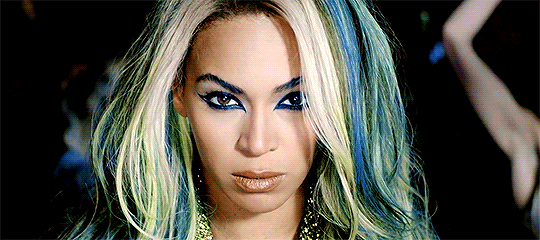
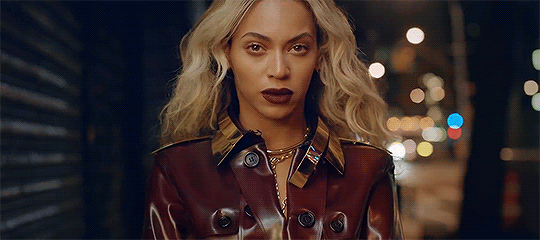





“But now, I’m in my 30s and those children that grew up listening to me have grown up and I’ve always felt like, it was my responsibility to be aware of kids and their parents and all these generations and I’ve felt like it stifled me. I felt like, in a sense, I could not express... everything. I’ve done so many things in my life, in my career, that at this point, I feel like I’ve earned the right to be me and to express any and every side of myself.”
4K notes
·
View notes
Quote
I started my own company when I decided to manage myself. It was important that I didn’t go to some big management company, I felt like I wanted to follow the footsteps of Madonna and be a powerhouse and have my own empire, and show other women when you get to this point in your career you don’t have to go sign with someone else and share your money and your success—you do it yourself.
Beyoncé
0 notes
Text
Years of 4: 2010-2013
Beyoncé ushered in the new decade with 10 Grammy nominations at the 52nd Annual Grammy Awards, of which she won 6, breaking the record for most wins by a female artist in a single night. She had just come off of the success of her album “I Am… Sasha Fierce”, its accompanying world tour, and a dance craze that swept the nation in “Single Ladies (Put a Ring on It)”. She took a musical hiatus to “live life [and] get inspired by things again”. However, she had just released her manager – her father – after an audit revealed he had embezzled funds from her previous tour. At the same time, she began her own management company under the banner of Parkwood Entertainment. A move like this is significant; this decision would alter the trajectory of her career forever. Previously, she had been critiqued as a hypocrite for tackling female empowerment in her music, but working under the command of her father. Some had gone as far as to accuse her father for paying for her radio spins and awards (especially after it was revealed that he was a voter of the Recording Academy’s Grammy Committee).
Her self-management created a sort of domino effect; after her hiatus, Beyoncé came back in 2011 with an album that diverted entirely from her most recent pop sound at the time. “4”, released in the summer of that year, embraced the singer’s traditional R&B roots, at a period when her contemporaries were fully invested in the wave of electronic dance music. Her documentary “Year of 4″ chronicles the making of the album all the way up to its release, along with many of the singer’s private thoughts about how the year of affected her growth as a person and as an artist. “4” revealed a more intimate side of Beyoncé, a side that was visited but never truly delved into during the heydays of the “I Am..” era. Tracks like “I Care” and “I Miss You” see the singer tearing down emotional walls for a guarded lover. She simultaneously begs and demands to be heard, the beginning of a dichotomy that is ever-present in subsequent releases. The album marries several power ballads with the doo-wop of “Love On Top”, the Fela-inspired “End of Time”, and ends with African dance-pop in the feminist anthem “Run The World (Girls)”. Inundated with the artist’s own harmonies, “4” hits on fluctuations of long-term love, and begins to knock down Beyoncé’s own walls between her celebrity, her personal identity, and her relationships.
Two days after the release of 4, a pregnant Beyoncé became the first woman in history to headline the Glastonbury Music Festival in Somerset, England, regarded as a major event in British popular culture. Her performance, broadcast on via BBC on British television, individually amassed 2.6 million viewers, breaking the record for most viewers for a single televised performance at the time. After having her first child, Blue Ivy Carter, at the beginning of 2012, saw the artist taking another career hiatus. She publicly endorsed President Barack Obama for re-election, and the following year saw her performing at his inauguration. Following her first ever Super Bowl performance, she was present as an activist in 2013, vocalizing support for the LGBT community after the Supreme Court debate on California’s Proposition 8. She and husband Jay-Z attended a rally in protest of the acquittal of George Zimmerman after the murder of Trayvon Martin, an unnarmed black teenager. She got and stayed in contact with Martin’s family, as well as others affected by police brutality.
She also became an ambassador Chime For Change, a global initiative founded by Gucci to strengthen the voices of women worldwide through crowdfunding projects that focus on women’s health, education, and justice. She and Chime For Change frequently partner with Global Citizen for the Global Citizen Festival, a free, annual charity music concert created as a part of the movement to end extreme poverty.
0 notes
